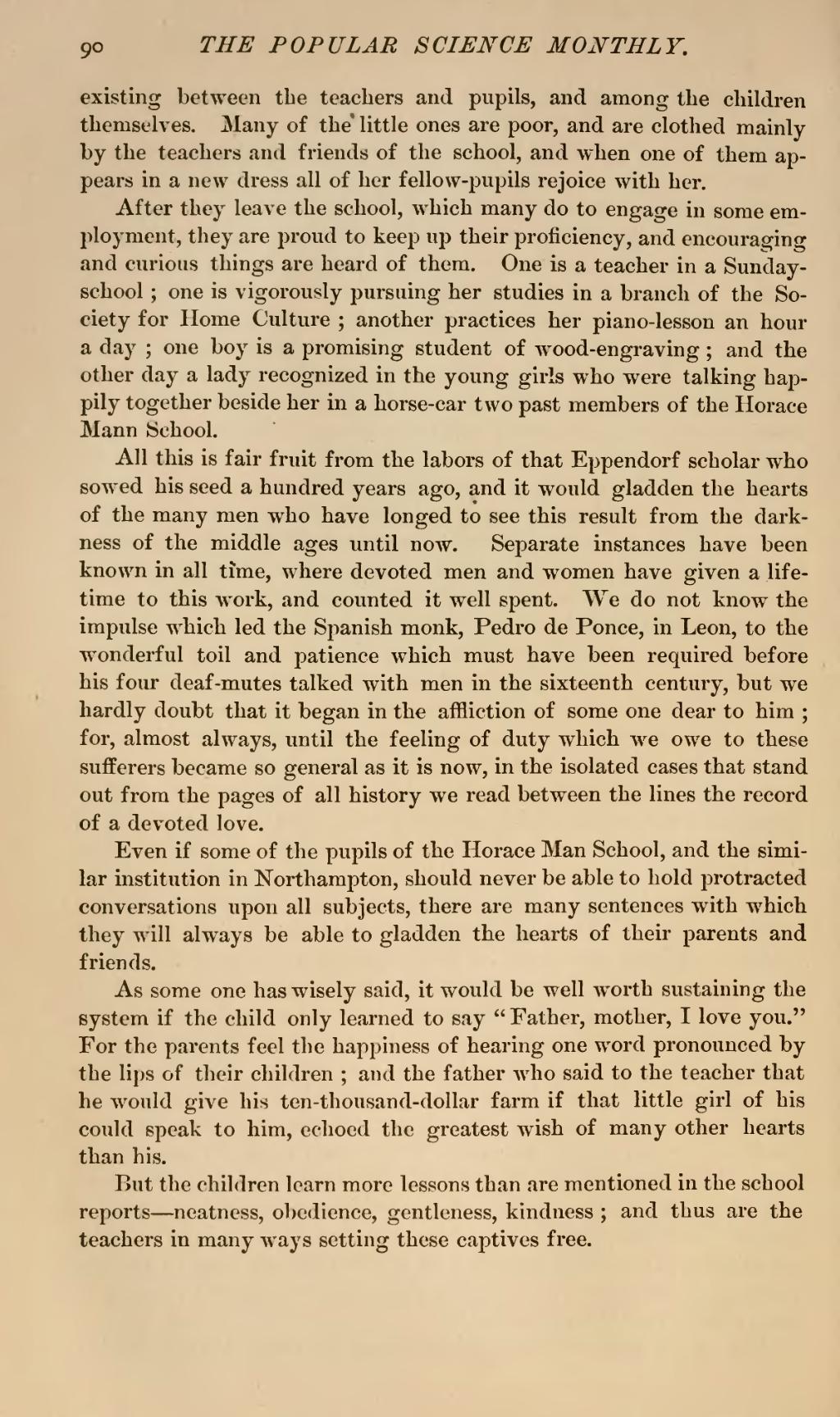existing between the teachers and pupils, and among the children themselves. Many of the little ones are poor, and are clothed mainly by the teachers and friends of the school, and when one of them appears in a new dress all of her fellow-pupils rejoice with her.
After they leave the school, which many do to engage in some employment, they are proud to keep up their proficiency, and encouraging and curious things are heard of them. One is a teacher in a Sunday-school; one is vigorously pursuing her studies in a branch of the Society for Home Culture; another practices her piano-lesson an hour a day; one boy is a promising student of wood-engraving; and the other day a lady recognized in the young girls who were talking happily together beside her in a horse-car two past members of the Horace Mann School.
All this is fair fruit from the labors of that Eppendorf scholar who sowed his seed a hundred years ago, and it would gladden the hearts of the many men who have longed to see this result from the darkness of the middle ages until now. Separate instances have been known in all time, where devoted men and women have given a lifetime to this work, and counted it well spent. We do not know the impulse which led the Spanish monk, Pedro de Ponce, in Leon, to the wonderful toil and patience which must have been required before his four deaf-mutes talked with men in the sixteenth century, but we hardly doubt that it began in the affliction of some one dear to him; for, almost always, until the feeling of duty which we owe to these sufferers became so general as it is now, in the isolated cases that stand out from the pages of all history we read between the lines the record of a devoted love.
Even if some of the pupils of the Horace Man School, and the similar institution in Northampton, should never be able to hold protracted conversations upon all subjects, there are many sentences with which they will always be able to gladden the hearts of their parents and friends.
As some one has wisely said, it would be well worth sustaining the system if the child only learned to say "Father, mother, I love you." For the parents feel the happiness of hearing one word pronounced by the lips of their children; and the father who said to the teacher that he would give his ten-thousand-dollar farm if that little girl of his could speak to him, echoed the greatest wish of many other hearts than his.
But the children learn more lessons than are mentioned in the school reports—neatness, obedience, gentleness, kindness; and thus are the teachers in many ways setting these captives free.
